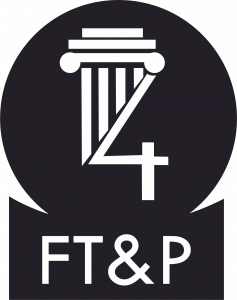
Author: Ifeanyi P. Okoli MCIArb.
This Article articulates the principle of a director’s duty of conflict of interest.
In the corporate world, the managing director of a company is the alter ego of the company. They are the human alternative of a corporate being, and embodies the full corporate personality of this corporate body. The managing director, together with the Board, is in a fiduciary position and is entrusted with making all key management decisions, which decisions are materially important to the growth, development and success of the company. For this reason, therefore, the activities and transactions of this human person (‘Director’), who owes a fiduciary duty while in the directorship of the affairs of the corporate body, and in certain aspects beyond, falls under constant scrutiny. He is under a strict legal obligation to diligently carry out and uphold the corporate duties and responsibilities of a director, including director’s duty of conflict of interest.
What then is a director’s duty of conflict of interest? A director’s duty of conflict of interest refers to the legal and ethical obligation of a director to act in the best interests of the company, to act in good faith, be transparent, accountable and to avoid any personal or financial conflicts of interest that may compromise their ability to so act in the best interest of the company. In most jurisdictions a director’s duty of conflicts of interest is a statutory one; it is also mostly weaved into the corporate governance environment architecture of different corporate sectors, such as in banking, conglomerates, multinational corporations and so on.
In the case of Nigeria, the statutory provisions of a director’s duty of conflict of interest are found in the relevant provisions of Companies and Allied Matters Act (CAMA) 2020. For example, section 305(1) CAMA stipulates the type of relationship which should exist between a director and the company.
305(1) ‘A director of a company stands in a fiduciary relationship towards the company and shall observe utmost good faith towards the company in any transaction with it or on its behalf’.
305(3) ‘A director shall act at all times in what he believes to be in the best interests of the company as a whole so as to preserve its assets, further its business, and promote the purposes for which it was formed, and in such manner as a faithful, diligent, careful and ordinarily skilful director would act in the circumstances’. The fiduciary implications in a director-company relationship places a legal obligation of loyalty, trust and accountability on the director, and forbids them from profiting from their fiduciary position in the course of their directorship.
Conflicts of Interests and Duties:
306(1) ‘The personal interest of a director shall not conflict with any of his duties as a director under this Act’.
(2) ‘A director shall not— (a) in the course of management of affairs of the company, or (b) in the utilisation of the company’s property, make any secret profit or achieve other unnecessary benefits’.
(3) ‘A director is accountable to the company for any secret profit made by him or any benefit derived by him contrary to the provisions of subsection (2)’.
(5) ‘The duty not to misuse corporate information does not cease by a director or an officer having resigned from the company, and he is still accountable and can be restrained by an injunction from misusing the information received by virtue of his previous position’.
(6) ‘Where a director discloses his interests before the transaction and before the secret profits are made before the general meeting, which may or may not authorise any resulting profits, he may escape liability, but he does not escape liability if he discloses only after he has made the secret profits, and in this case, he shall account for the profits’.
Disclosure by Directors of interests in Contracts:
Where a conflict of interest arises, or a conflict situation becomes imminent, a director is required, and is under a legal obligation to declare it at the earliest opportunity and take steps to manage and mitigate it. Such steps may include recusing themselves from meetings and decisions related to the conflict, and/or taking independent legal advice to ensure that the company’s interests are protected.
This duty of disclosure continues in all transactions where there is a potential risk of conflict of interest.
303(1): Subject to the provisions of this section, it is the duty of a director of a company who is in any way, whether directly or indirectly, interested in a transaction or a proposed transaction with the company, to immediately notify the directors of such company in writing, specifying particulars of the director’s interest’.
Consequences of a breach.
Failing to properly manage or disclose a conflict-of-interest situation could result in serious consequences for both the director and the company. A director caught in this situation may face legal action and/or regulatory sanctions. The company’s corporate reputation and financial standing might take a hit or be at risk. Under the general duties of Directors, a director’s duty of conflict of interest is arguably the most important, requiring a delicate balancing act of transparency and professionalism. This duty is so central to the corporate success of a company that strict provisions of the law are designed for the protection of companies, with contravention attracting severe sanctions and consequences.
S.305 (8) ‘No provision, whether contained in the articles, resolutions of a company, or any contract, shall relieve any director from the duty to act in accordance with this section or relieve him from any liability incurred as a result of any breach of the duties conferred upon him under this section’.
(9) ‘Any duty imposed on a director under this section is enforceable against a director by the company’.
Conclusion.
The corporate governance provisions for the management of corporations fall at the heart the success or otherwise of a corporation. The corporate governance structure of a corporation comprises rules, processes and practices which are geared towards creating an environment of trust, transparency and accountability in the management and control of the corporation. The corporate governance construction may relatively defer from industry to industry and from corporation to corporation. However, the director’s duty of conflict of interest is the defining principle underpinning the construction and execution of the concept of corporate governance. The rules, processes and practices of a corporation are not statutorily provided, but the director’s duty of conflict of interest is, breach of which attracts criminal consequences.



